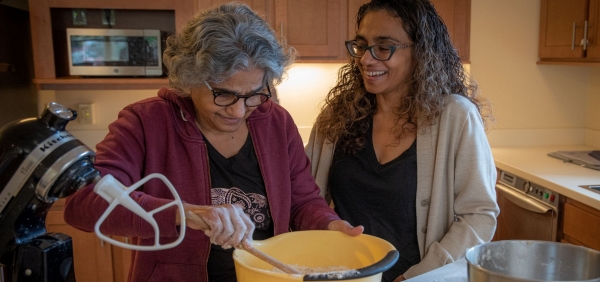9 Simple Ways to Safeguard Your Loved One’s Finances

The money talk. It can be one of the most difficult conversations to have with a loved one living with dementia. After all, their money is their business, and their sense of independence may feel threatened if you intervene. It is incredibly important to safeguard your loved one’s finances, and starting early will make it less difficult for everyone involved. Here are nine simple ways to safeguard your loved one’s finances.
1. Have The Conversation
This may be the most difficult piece, but it’s a necessary one to get the process started. The earlier you have this conversation, the better you can protect them from fraud and other financial bumps in the road. While they may feel threatened, assure them it is in their best interest to have someone take over.
2. Check In With Family
Call a family meeting. It is crucial that everyone is informed on the terms of the will, life insurance, and expenses for your loved one. Make sure your loved one is included in this meeting. You don’t want them to feel excluded.
3. Get Power of Attorney
Obtaining the power of attorney allows a person to act for another person in legal and financial matters. This person is granted the legal authority to make decisions about the principal’s property, finances, or medical care. We suggest meeting with a professional in person to work up paperwork and documents to become power of attorney.
4. Limit Access to Funds
Avoid the brutal cost of scams, lost money, and other unnecessary expenses by limiting your loved one’s access to funds. Let them know they have what they need during a certain period of time, and if something comes up you can help them manage their money at that point.
5. Handle Bill Pay
Have you ever come across a bill of your own that’s been wrongly charged or one that you no longer should be receiving? It happens to us all. Take bill pay into your own hands and manage recurring bills and annual fees.
6. Manage Automatic Payments & Withdrawals
Automatic payments can be tricky, as many mishaps may go unnoticed since it seems as if your financial institution is taking care of it. Take a close look at your loved one’s automatic payments and withdrawals and ensure they make sense. Your loved one may no longer be attending the gym, for example. Now is the time to cancel.
7. Plan For Their Estate
The thought of managing your loved one’s estate can feel daunting. First, take an inventory of important documents and property-related material. This can be overwhelming to handle all at once, so take baby steps and make your list ahead of time. This is also a good time to help them address any outstanding debt.
8. Check On Wills & Trusts
Check in with your loved one. Do they have a will in place? Do they have a trust set up? These are both very important pieces of the financial puzzle. Make sure they have their needs and desires accounted for ahead of time.
9. Consider Hiring Outside Help
If there is simply too much to look over, or too big a financial mess to clean up, look at hiring outside help. A daily money manager can be a great resource to get things sorted out, or simply give advice on how to help safeguard your loved one’s funds.
For more information on caring for your loved one suffering from memory loss, visit the Artis Senior Living blog.



